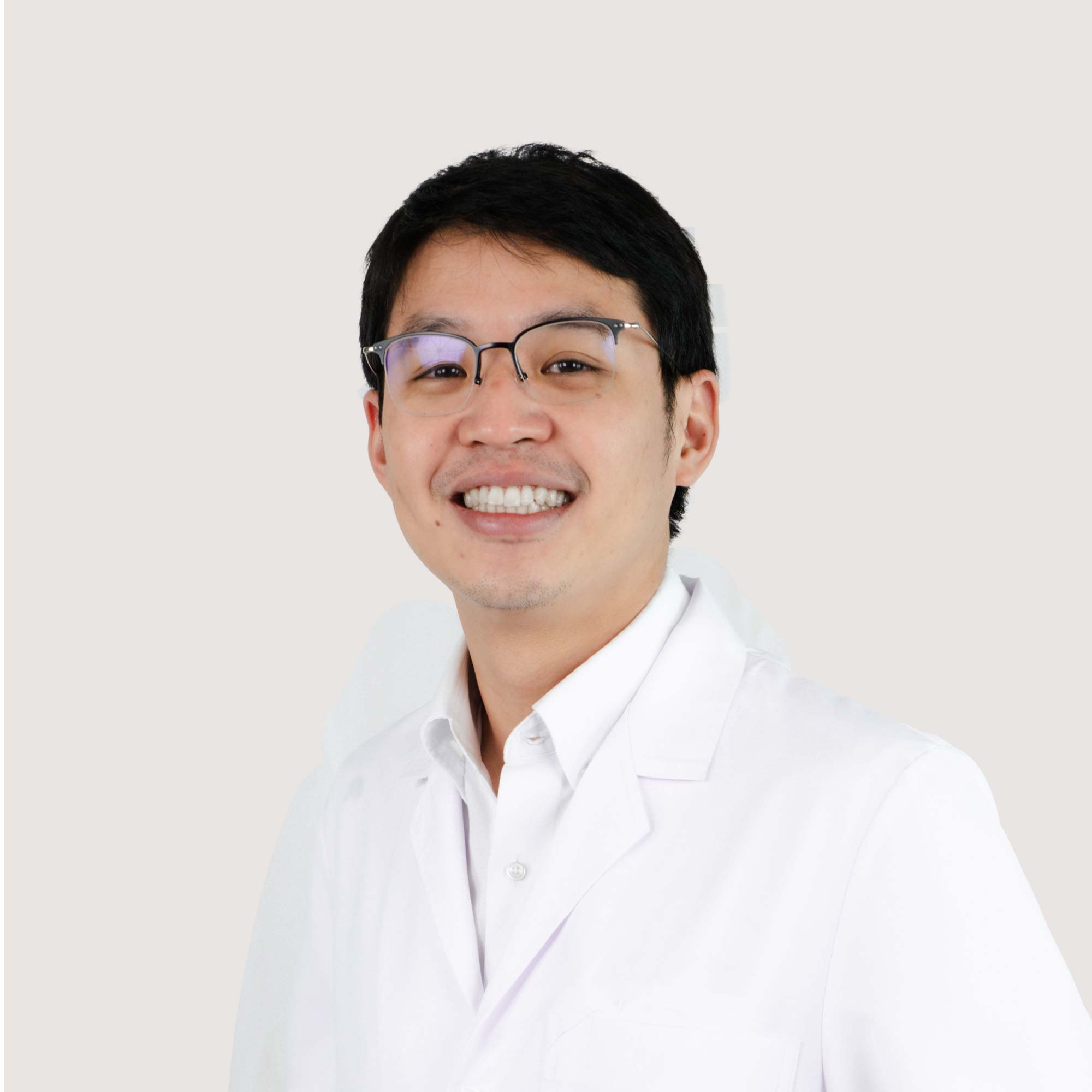Choose the content to read
- Symptoms
- Causes
- Risk factors that may cause breast cancer
- How can we prevent breast cancer?
- Diagnosis
- Living with Breast Cancer
- Managing Fatigue
- Palliative care
- FREE breast cancer E-book! Recommended by our specialist
Breast Cancer
Breast Cancer, prevalent in females, can also develop in males. Nowadays, the survival rate of breast cancer patients has significantly improved, while the mortality rate has consistently declined; these are attributable to early detections and advancements in treatment strategies that are more effective and progressive than before.
What are the symptoms of breast cancer?
- You feel a lump in your breast.
- Breast skin appears thick and dimpled or has a texture similar to orange peel.
- Your breast looks different in size and shape.
- Your nipple retracts inward.
- Your areola becomes peeling.
When to see a doctor?
When you feel a lump or notice changes in your breast, immediately seek a proper diagnosis even though you have a recent mammogram.
Breast cancer is caused by what?
The abnormal cell proliferation, particularly of the ductal and glandular epithelium, can lead to the formation of a lump or breast cancer. Cancer cells can metastasize to lymph nodes and other organs. Hormones, lifestyle, environmental factors, and genes can contribute to transformation into breast cancer. Five to ten percent of breast cancers are hereditary. Researchers have identified inherited mutated BRCA1 and BRCA2 genes linked to a high lifetime risk of breast and ovarian cancer.
Factors that contribute to risk?
- Gender: Females have a higher likelihood of developing breast cancer than males.
- Age: The risk of breast cancer increases with age.
- Family history: If your mother, sister, or daughter had breast cancer, especially at a young age, your risk is significantly higher.
- Inherited gene mutations: If BRCA1 and BRCA2 run in your family, your breast cancer risk is much higher.
- Previous breast issues or cancer: A history of conditions like LCIS or atypical ductal hyperplasia raises your risk. If one breast has cancer, the other is at higher risk.
- Obesity: Excess weight increases breast cancer risk in women.
- Pregnancy and childbirth: First childbirth after 30 or nulliparity increases risk.
- Menstruation and menopause: Early menarche before 12 or late menopause can raise risk.
- Hormone replacement therapy: Using estrogen and progesterone hormones for menopause increases risk.
- Radiation exposure: Risk increases if exposed to radiation at a young age.
- Alcohol consumption: Drinking alcohol increases breast cancer risk compared to non-drinkers.
Can breast cancer be prevented?
Women with no or low risk of breast cancer
- Have regular breast cancer screening, such as clinical breast exams and mammograms.
- Learn to perform breast self-exams and regularly inspect your breasts for changes or abnormalities.
- Limit your alcohol consumption to one drink per day if you choose to drink.
- Exercise regularly, at least 30 minutes a day.
- Limit postmenopausal hormone therapy to the lowest dose and shortest period possible to minimize the risk of breast cancer.
- Keep a healthy weight. Eat a healthy, balanced diet with more fruits, vegetables, whole grains, legumes, fish, and healthy fats such as olive oil.
Women with a high risk of breast cancer
- Chemoprevention: Taking anti-estrogen medications can help minimize the risk of breast cancer. Before using the drugs, make a risk assessment and consider the pros and cons.
- Preventive surgery: Some women may decide to have prophylactic mastectomy and oophorectomy, removing the breasts and ovaries to prevent the future development of breast and ovarian cancers.
How is breast cancer diagnosed?
Diagnosing breast cancer
- Breast self-exams can help detect breast skin abnormalities or lumps in the breasts and armpits.
- A mammogram can help detect small, non-palpable masses or cancer as a screening or diagnostic test.
- Breast ultrasound can determine if there are solid breast masses or fluid-filled cysts.
- Biopsy can help analyze a sample of your breast tissues for cancer cells. It can determine the type and grade of cancers and the status of hormone receptors of the cancer cells to plan a suitable treatment.
- Breast MRI can help identify the size, location, and extent of the tumor or cancer.
How to deal with it, when it is breast cancer?
Finding out that you have breast cancer can be overwhelming and require you to make crucial decisions on your treatment options. It can be helpful to prepare yourself emotionally and physically before getting treatments.
- Learn about your breast cancer by asking your doctor about the type, stage, and hormone receptor status of the cancer and the pros and cons of each treatment option.
- Talk to breast cancer survivors or professional counselors who work with cancer survivors. Sharing your thoughts and feelings with someone who has undergone the same situation can help you relieve and manage stress and emotional strains.
- Stay connected with your close circle of friends and family. They can be your essential support system while you are undergoing cancer treatment. They can be someone you can confide your emotional strains or even someone who can cook for you when you are too weak.
How many ways are there to deal with physical fatigue when having breast cancer?
Breast cancer patients usually experience fatigue during and after treatment. Alternative medical therapies can help relieve the feeling of tiredness.
- Discuss with your doctor if doing gentle exercise such as yoga, tai chi, walking, or swimming is possible.
- Practice stress-reduction techniques such as muscle relaxation.
- Write a journal to express your emotions while getting treatments.
Palliative care
Palliative care aims to ease pain and improve the quality of life for individuals facing serious or life-threatening illnesses. This approach, provided by a multidisciplinary team of doctors, nurses, and healthcare professionals, helps manage severe symptoms. This alternative care method, working in concert with patients and their families, effectively complements ongoing treatments like surgery, radiotherapy, or chemotherapy.
Related Package
Patient Story
Related Content














